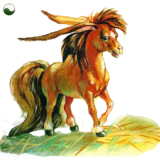Alexander Belyayev, long-dead russian sci-fi writer · 3:59pm Feb 17th, 2020
I liked his books, in my childhood.
Guess in English-speaking world he only known by few translated works or references ....
One of such references:
Retracing the India of the “Soviet Jules Verne”
It is difficult to imagine the sheer appeal Belyayev’s books held for an entire generation of Soviet readers. His novels and short stories were devoured by avid readers, young and old, in the USSR. Armed with a formidable knowledge in various branches of science, Belyayev prefigured in his books in the 1920s–30s such latter-day achievements as organ transplantation (“The Head of Professor Dowell”, “The Amphibian Man”), hormone therapy (“The Man Who Found His Face”), space missions and space stations (“The KEZ Star”), underwater TV and ultra-sonography (“Mysterious Eye”).
Less obvious reference in pdf file called
Eugenics in Russia, by Vera Shamina. I was surprised by idea of ape/human hybrids apparently considered seriously in 1920x in USSR!
A. Belyaev at first sight seems to be far from politics. Son of a clergyman
he studied at the seminary and though did not follow his father’s views and
developed atheistic world outlook was considered in Soviet Russia as
ideologically “unreliable element” Being for long periods bed-bound due to the
incurable spine disease he actually depended on the development of medical
science, which could perfect human nature and dreamt of the times when
scientists could conquer illnesses and even death. Commenting one of his most
popular novels The Head of Professor Dowell, - Belyaev wrote, - ‘is to a great
extent an autobiographical piece. Illness once laid me down for three and a half
years into a plaster bed. All this time the lower part of my body was paralyzed.
And though I could move my hands it was basically life of the head without the
body, which I didn’t feel at all…It was then that I thought and felt all that a head
without body can experience.’11So unlike Bulgakov he didn’t mean to create allegories and was interested
in the development of science as such and its fate in the modern world. In one of
his best-known novels “Amphibious man” he features a young man with
transplanted gills, which was done by a genius scientist Professor Salvator to
save his life – the boy had a fatal lung disease. Professor Salvator successfully
carried out experiments in transplantation of animal organs to save dying people.
As a result Ichtiander was able to breathe both on land and in the water. It is a
beautiful romantic story of a young man enjoying unbounded freedom in the
sea, making friends with dolphins, playing with fish, helping drowning people.
He is perfectly happy until he falls in love and wants to join the world of people
– a kind of remake of the famous Anderson’s mermaid tale.
For ape thing see p. 3 in this pdf file .... o.O
The other concern which made the Party support bold experiments was a
global one. “The father of the nation” as well as his comrades in arms favored
the idea of crossbreeding humans with apes. Such hybrids would have good
health, possess superhuman strength and endurance and be obedient. They could
live in special reservations, feed on food waste, work from morning till night
and follow any order without questioning. Such creatures would not need Gulag.
This task was entrusted to a very talented scientist Ilya Ivanov the one who
developed the method of artificial insemination, and managed to breed different
hybrids, such, for example, as zebra and donkey, but his final goal was using
this method to crossbreed human beings with apes. Ivanov’s major argument
was that it could prove the materialistic theory about the origin of man and the
theory of evolution. The Soviet government considered his arguments quite
convincing and allotted a handsome sum of money for his expedition to French
Guinea in 1926, where he hoped to find volunteers among native women, who
would do it for money. However he failed and was sent to continue his
experiments to the famous ape arboretum in Sukhumi. In 1927 the newspaper
Krasnaya Gazeta in its article ‘Future Sukhumi Arboretum’ wrote: ‘It is
projected to carry out artificial insemination of apes of different types as well as
crossbreeding of apes with human beings. There will be experimental
insemination of women from apes and apes from men according to Professor
Ivanov’s method.’2 This publication caused a row abroad and just accusations of
immorality. After that the experiments were continued in top secrecy. We still
don’t know whether the scientist managed to create a “new man”, but there is a
hypothesis, that yetis are nothing but off springs of such experiments, which
according to some evidences were secretly continued in GULAG.
H1 sized o.O![]()
I guess every book and article carries shared/embedded/invisible biases, imprinted by its host culture ... but what to do about such situation - I don't know ..... so, I'll continue to do this read thing.




